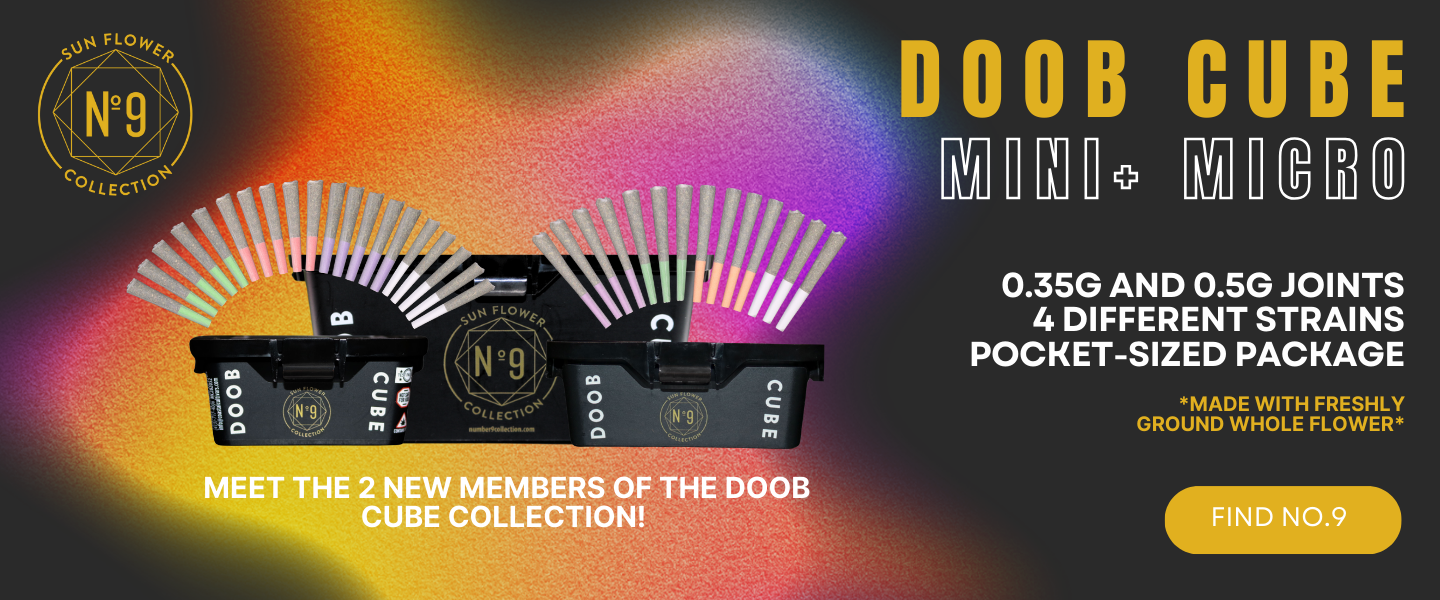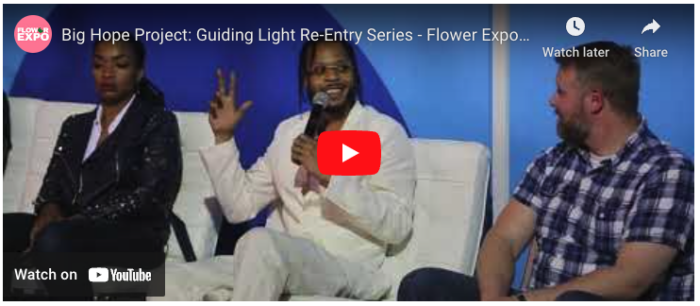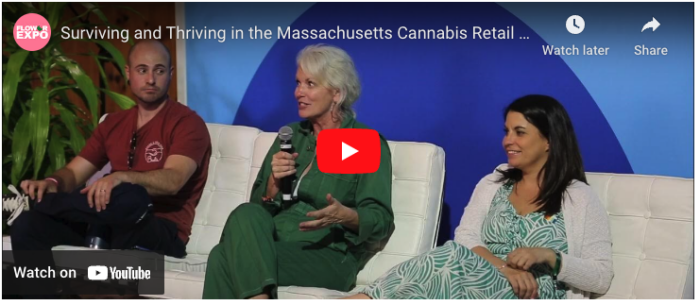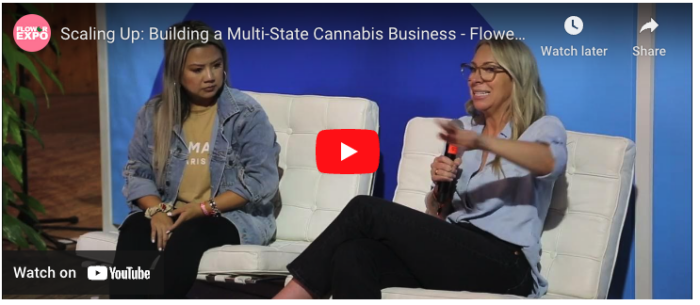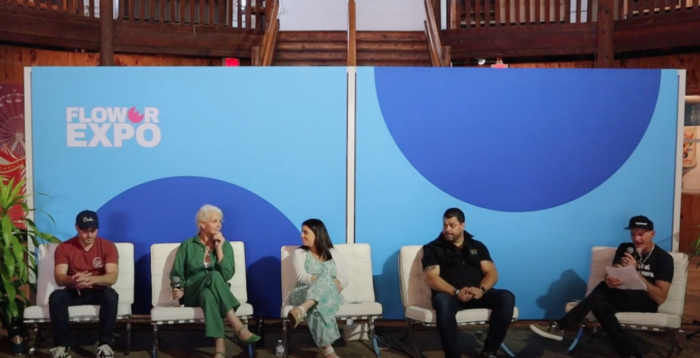
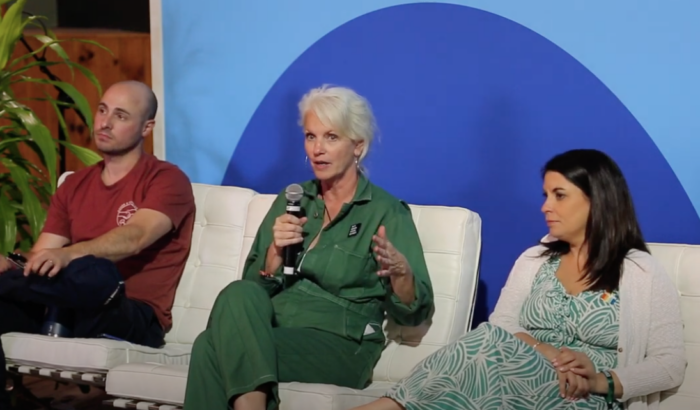
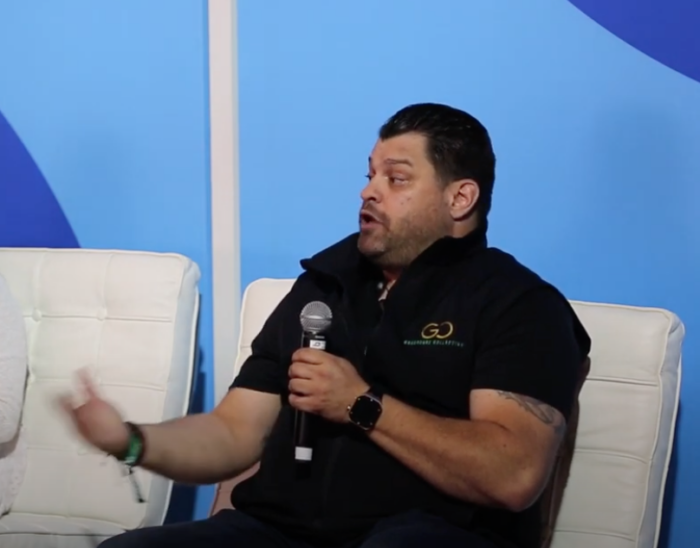
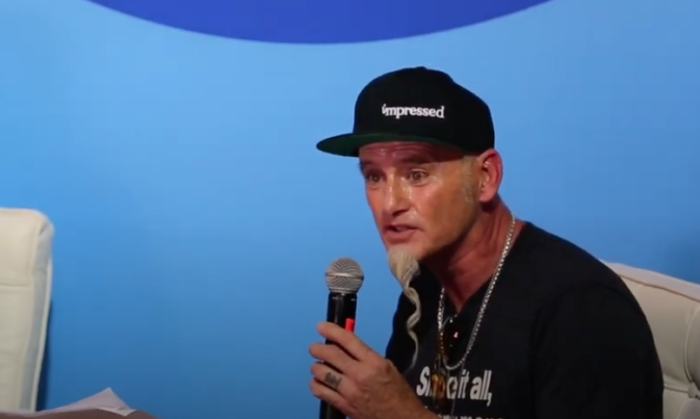
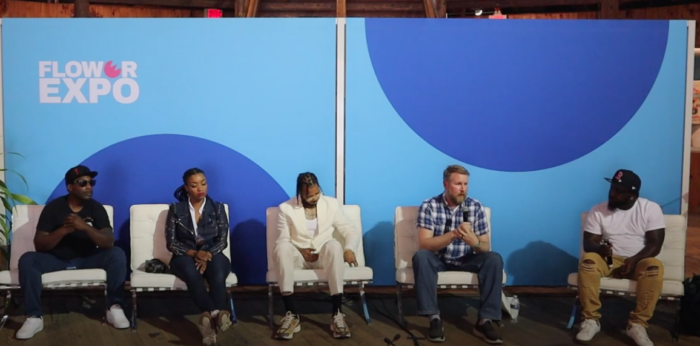
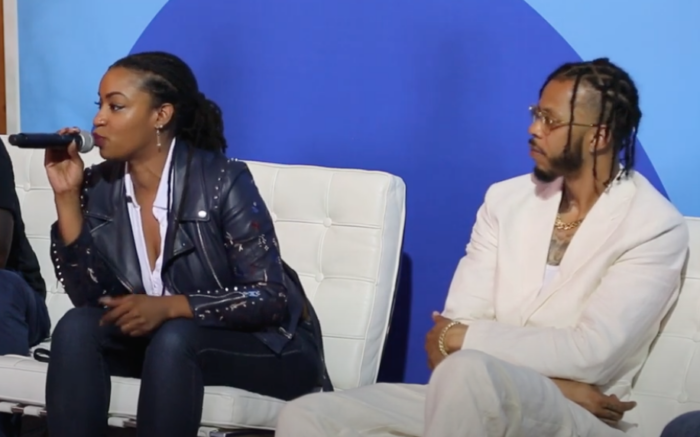
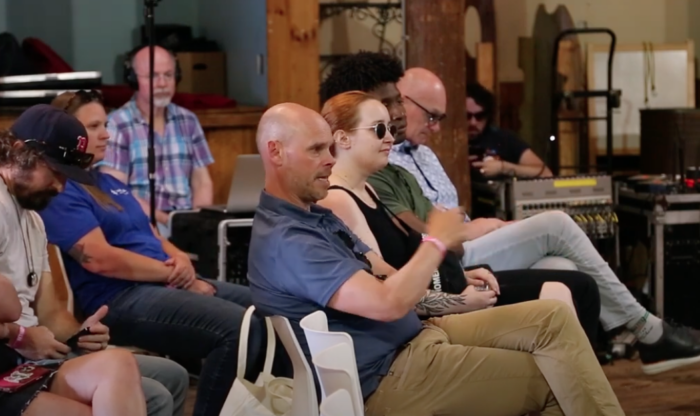
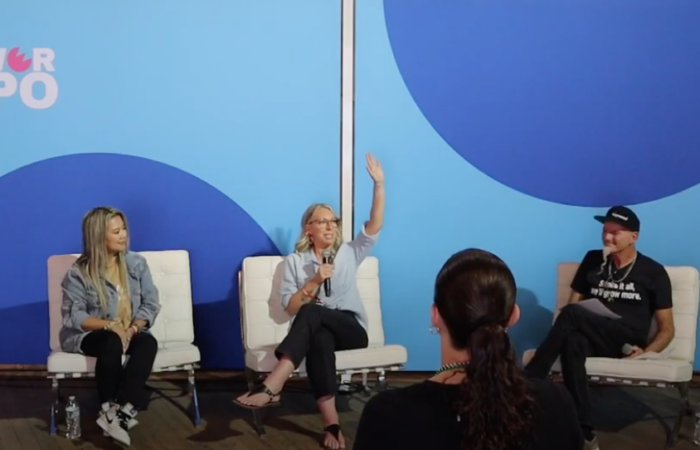
Mass industry leaders talk retail, pressures, social equity, commitment, and quality
Whether you’re looking for trade secrets, advice on best practices, consumer tips, or help getting into the cannabis field, the answers are probably out there. What’s difficult is sifting through the noise in order to shake out the good stuff.
We find that a lot of truly informative chatter comes from trade shows and other canna colloquiums, but often flies under the radar. We’re always down to amplify compelling talks, and the recent Flower Expo hosted three panels with a range of Mass industry leaders which deserved watching and excerpting. The first was moderated by David Jean-Jacques of the Big Hope Project, and the latter two were helmed by Ralph Greenberg of Impressed.
Below you’ll find three videos from the event along with corresponding pull quotes from participants. It’s a lot to chew on, and we will be following up on several of these fronts.
Big Hope Project: Guiding Light Re-Entry Series
Harry Jean-Jacques (Big Hope Project) on recognizing enduring disparities …
“We’re the ones most likely incarcerated for the same product. Even now, after legalization, Black people are arrested [at a higher rate than] their Black counterparts. … If you look at the [Black cannabis business] ownership rate, it hovers around 3% nationally, which I think is horrendous. … Everybody knows there is a lot of work to do.”
Dutch ReBelle (Bridge Connect Transport / ReBelle Music) on rapidly changing trends …
“Being new to the industry, you see how many changes happen in [short] time. … The music industry and the cannabis industry are the same thing—when you’re doing well. Because there’s this celebrity aspect of that plug that you’re trying to get next to. … It’s the same thing in the music industry.”
Derrel Slim Weathers (Voices of Liberation / SCOPE) on taking the reins …
“It’s important to build political power in the communities where people don’t have access to that knowledge. … If [the state, regulators, etc.] really want to be fair and equal they can start building in the communities that don’t have access first. [As an example of taking the initiative], we have a tracking method where we can track down all the vacant properties inside the City of Boston. We got that policy passed as an ordinance [through the Boston City Council].”
Blake Mensing (The Mensing Group) on the limitations of the Social Equity program …
“The [Cannabis Control Commission] likes to spend a lot of time patting themselves on the back for their equity programming and you look at the numbers and it’s just terrible. … Policies on paper are all well and good and I think that’s what the commission likes to focus on, but you can’t look at the policies in a vacuum, you have to look at what the results are. And I think the biggest failing of the Social Equity program is that up until a recent law change no money came with that.”
David Jean-Jacques (Big Hope Project) on proactive community outreach …
“We have a fellowship where we teach people how to get into the industry, have empowerment and livable wage jobs, and really make a difference in the community. The Guiding Light initiative is our reentry program based in Boston. We just got funded to do re-entry services where we are going to give direct aid and teach people how to get into the industry through the Social Equity program and just really uplift and empower the community.”
Surviving and Thriving in the Massachusetts Cannabis Retail Market
Alex Mazin (CEO & Founder, Bud’s Goods & Provisions) on customer loyalty …
“A great majority of customers are loyal to their dispensary. Yes, there are those who are price comparing and going to wherever the cheapest flower is, but it’s really important to think about your customer as a subscriber. They have subscribed to your establishment.”
Angela Brown (CEO & Founder, Coast Cannabis) on working owners …
“One of the common trends in our best partners and in the best performing stores in Massachusetts is that ownership is present, it is their business, it is their baby. The ownership is very bought in and they work in the business every day. You see that from day one there is this authentic vibe to who they are. And to what they have built. And that’s not to say your brand is developed on day one, it takes time, there are iterations, there are paths to go down, but if you can keep building upon that then that’s going to help your brand become more successful.”
Meg Sanders (CEO & Co-Founder, Canna Provisions) on regulatory over-policing …
“We have a significant issue with the investigative arm of [CCC]. And it comes up at every round table I can attend. … I’ve been doing this since 2009. I’ve worked through many regulatory bodies and … the investigative arm of this particular entity is the most challenging and honestly the most punitive. … By definition, our investigators are required to have 10 years of law enforcement, so you know exactly who you’re dealing with. You know exactly who’s walking through the door. And this cop-perp mentality has to stop. We are partners. … It should be a lot simpler.”
Brian Hurley (Founder, GreenCare Collective) on knowing your clients and markets …
“When we create brands, we want that story to resonate with that buyer. If I’m going to want the MSRP to be $50 on one of our eighths, then you better believe that packaging is going to be spot on. And then you gotta back it up with the quality [product] inside of the packaging as well. … Some retailers are not going to be successful with products that other ones would be. We do not push our top-tier products on clients that don’t have that sell-through because we don’t want our products to sit on the shelves and make that store look bad and we don’t want them to have stale inventory.”
Scaling Up: Building a Multi-State Cannabis Business
Charmaine Chua, MBA (VP of Consumables, PAX) on the importance of authenticity …
“The main thing I think that is critical to creating a brand is authenticity. If you want this brand to be or act a certain way you can’t create a brand that isn’t you, because the cannabis community will sniff it out real fast. … I like to latch onto those who are really good at [creating authentic brands] and say, Hey, give me a job.”
Courtney Eder (Regional Sales Director, WANA Brands) on WANA”s “asset-light model” …
“We’re not investing in buildings, infrastructure, or licenses in each state that we expand to outside of Colorado. We’re instead relying on what’s considered a licensing model. So we locate a key producer in the state. It’s a pretty deep vetting process; we find someone that we are in alignment with—Temple Hill Collective in Massachusetts—and that allows us to be nimble and move quickly because this business is not for the faint of heart and just the act of waiting for those licenses can be overwhelming.”
Ralph Greenberg (Founder, Impressed) on quality first …
“As a cultivator, you have to do the right thing for the plant. Fire in, fire out. You have to have a good quality product that goes into [edibles, vapes, etc.]. … I’m a flower smoker, candidly, but we all know that without great flower, the products don’t work.”


